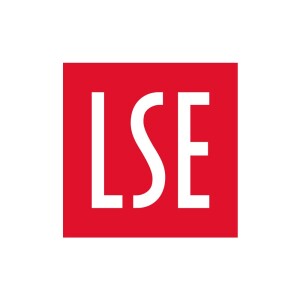
Are we doomed, or can the climate crisis be averted?
 2020-04-07
2020-04-07
Download
Right click and do "save link as"
To subscribe on Apple podcasts please visit apple.co/2r40QPA or on Andriod subscribeonandroid.com/www.lse.ac.uk…unesStore.xml or search for 'LSE IQ' in your favourite podcast app or visit lse.ac.uk/iq
Welcome to LSE's award-winning podcast, LSE IQ, where we ask leading social scientists - and other experts - to answer an intelligent question about economics, politics or society.
This month’s episode of the LSE IQ podcast asks if the climate crisis can be averted.
If you can, cast your mind back a few months. Can you remember a time when toilet roll wasn’t a prized possession? Or when going out meant more than a trip to the supermarket? You may recall talk of another crisis, one that threatened millions of lives and livelihoods.
In the midst of the coronavirus pandemic, this episode turns its attention back to this other threat to our world: climate change.
One of the few positives to emerge from the pandemic is a dramatic decline in greenhouse gas emissions. Both China and Europe are forecast to emit 25% less greenhouse gases in 2020 and in New York carbon monoxide levels have already dropped by 50%. As city smogs lift, fewer people are predicted to suffer strokes, or contract heart disease and lung cancer. While this drop will only be temporary, does the pandemic point to how bold action on the climate is possible? Or is it inevitable that hundreds of millions of people face hunger, drought and flooding?
In this episode we talk to Ivan, a member of Extinction Rebellion, Bob Ward, Policy and Communications Director of the Grantham Research Institute on Climate Change and the Environment, LSE, and Svenja Surminski, Head of Adaptation Research at the Grantham Research Institute on Climate Change and the Environment, LSE.
Research
Loss and Damage from Climate Change, Editors: Reinhard Mechler, Laurens M. Bouwer, Thomas Schinko, Swenja Surminski, Joanne Linnerooth-Baye
Grantham Research Institute on Climate Change and the Environment can be found online.
Contributors
Bob Ward
Svenja Surminski
Ivan, XR
view more
More Episodes
012345678910111213141516171819
Create your
podcast in
minutes
- Full-featured podcast site
- Unlimited storage and bandwidth
- Comprehensive podcast stats
- Distribute to Apple Podcasts, Spotify, and more
- Make money with your podcast
It is Free
- Privacy Policy
- Cookie Policy
- Terms of Use
- Consent Preferences
- Copyright © 2015-2024 Podbean.com






